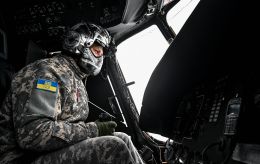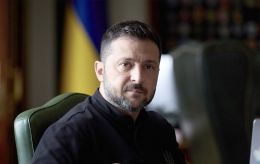Diplomatic rift over AZAL crash: Will Aliyev’s demands change Russia-Azerbaijan relations forever?
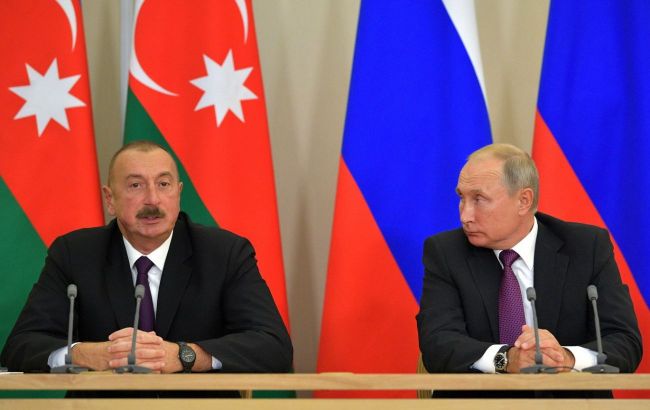 Photo: Ilham Aliyev awaits Vladimir Putin's public acknowledgment of Russia's fault in the AZAL plane crash (kremlin.ru)
Photo: Ilham Aliyev awaits Vladimir Putin's public acknowledgment of Russia's fault in the AZAL plane crash (kremlin.ru)
Azerbaijan's President Ilham Aliyev is pressuring Vladimir Putin to acknowledge Russia's responsibility for the Azerbaijan Airlines (AZAL) plane crash. He accuses Russian representatives of attempting to "cover up the incident," demanding apologies and compensation.
Details on how this is unfolding and whether the AZAL crash could strain relations between the leaders of Azerbaijan and Russia can be found in the RBC-Ukraine material.
Contents
- AZAL plane crash: Key facts
- How the versions and the rhetoric of Russia and Azerbaijan have changed
- Why Putin doesn't publicly admit guilt
- Will Aliyev turn away from Putin because of the AZAL disaster
AZAL plane crash: Key facts
An Embraer 190 passenger plane, flying from Baku to Grozny (Chechnya), crashed near the Kazakhstani city of Aktau on the morning of December 25. There were five crew members and 62 passengers on board, with 38 people confirmed dead.
The plane attempted to land in Grozny three times, with passengers reporting hearing sounds similar to an explosion during the final attempt. According to the flight data recorded on the Flightradar24 online service, the plane disappeared from radar around 08:25 AM near the city of Kaspiysk. It reappeared about an hour and a half later, over the Caspian Sea, moving toward Aktau.
In the initial hours, various causes for the crash were suggested by Russian sources: a bird strike, dense fog, and an oxygen tank explosion on board. However, after examining the wreckage, it became clear that the plane was damaged by elements of a surface-to-air missile. The attempted landing in Grozny coincided with the operation of the air defense systems, which were countering a drone attack.
For more details about the first hours after the tragedy, read the material Kazakhstan plane crash: What happened and how Russia suppressing missile theory.
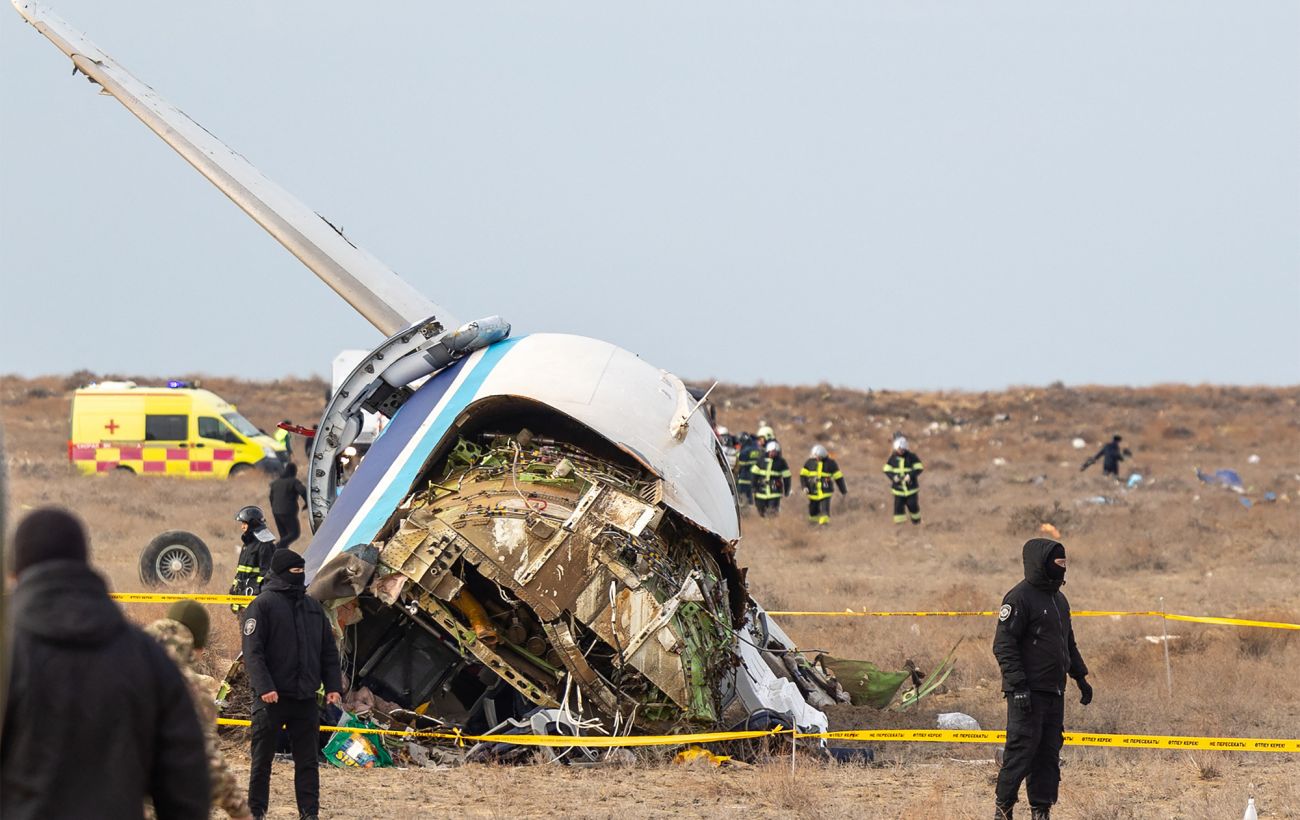
Photo: wreckage of the Azerbaijan Airlines plane (Getty Images)
In recent days, Azerbaijan has openly demanded punishment for those responsible and compensation from Russia. During this time, the Russian authorities were forced to stop remaining silent, and Vladimir Putin has already apologized "for the tragic incident." However, this is not enough for Ilham Aliyev.
How the versions and the rhetoric of Russia and Azerbaijan have changed
On the day of the crash, Rosaviatsia issued a statement saying that the plane's captain, after a bird strike and an emergency situation, decided to divert to a backup airport and chose Aktau in western Kazakhstan.
At that time, Aliyev said that the cause of the crash was still unknown. "According to the information I received, the AZAL plane changed course due to deteriorating weather conditions and started heading towards Aktau airport, where the accident occurred during the landing," he stated.
On December 26, Putin's spokesperson Dmitry Peskov refused to "build any hypotheses" and called for waiting until the investigation was completed. Euronews sources in the Azerbaijani government reported that the cause of the crash was a Russian "surface-to-air" missile that hit the plane during a drone strike on Grozny.
The Azerbaijani caliber.az news agency wrote that the plane was shot at by the Pantsir-S air defense system as it approached the Chechen capital. It disappeared from radar after Russian electronic warfare systems paralyzed the communication systems on board. According to Reuters, no one in Azerbaijan believes it was done intentionally, but given all the facts, they are waiting for Russia's acknowledgment.
The next day, Peskov noted that he had "nothing to add" to what he had said earlier. AZAL issued a statement that the plane had suffered external physical and technical impacts. Dmitry Yadrov, head of Rosaviatsia, complained about the difficult situation at the Grozny airport due to an alleged Ukrainian drone attack and dense fog. "The commander was offered other airports. He decided to proceed to Aktau airport. Many different circumstances need to be jointly investigated," he added.
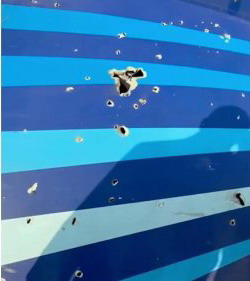
Photo: traces visible on the wreckage of the planes characteristic of damage from a surface-to-air missile (bakues.az)
According to Azerbaijan's Minister of Digital Development and Transport, Rashad Nabiyev, passengers and flight attendants heard explosions while flying over Grozny. "There were also visible puncture holes in the plane’s wing. Inside the plane and on the fuselage, there was damage from various cutting tools," he said.
On Saturday, Putin called Aliyev and apologized for the "tragic incident that occurred in Russia's airspace." Aliyev emphasized that the holes on the fuselage confirm the fact of external impact.
On December 29, the head of Russia's Investigative Committee informed the Azerbaijani Attorney General that Russia was also conducting an investigation. Meanwhile, President Aliyev sharply criticized Moscow in an interview with Azerbaijani television.
According to him, the version involving the destruction of the plane by a surface-to-air missile is well-founded and based on facts. It is still unclear to what extent electronic warfare affected the aircraft's control systems and how effective the explosion near the plane was, but attempts to deny the obvious fact and obscure it are "absurd and foolish."
Aliyev believes that Russia should apologize, acknowledge its guilt, punish the perpetrators, and pay compensation. "These are our conditions. The first of them was fulfilled yesterday. I hope that our other conditions will be accepted," he said.
Some Russian official sources attempted to suppress information about the incident by promoting false versions. "One of the things that upset and surprised us was that Russian official bodies put forward versions about an explosion of some gas cylinder. This clearly showed that Russia wanted to cover up the issue, and of course, this does not honor anyone," Aliyev added.
He also emphasized that, in his opinion, the plane was not shot down intentionally. "Unfortunately, for the first three days, we heard nothing from Russia except for delusional versions," said the President of Azerbaijan.
Baku also rejected the participation of the Interstate Aviation Committee (IAC) in the investigation, due to the dominance of Russian representatives in the committee. According to Aliyev, the refusal was categorical because "it is no secret that the structure is headed by Russian citizens, and the factors of objectivity could not be fully ensured."
However, had Russia taken a constructive stance from the very beginning, the proposal for an IAC investigation could have been accepted. After Aliyev's interview, news emerged of a second phone conversation with Putin. The Kremlin's press service stated that the leaders "continued their discussion of various issues" related to the AZAL crash.
Why Putin doesn't publicly admit guilt
Publicly admitting guilt would be seen as an embarrassment for Russia. This is the most logical explanation, as Putin dislikes apologizing, especially when it comes to countries he perceives as being of lower status, explains the head of the Center for Applied Political Research Penta, Volodymyr Fesenko.
"It's one thing if it were China or the US. However, in the case of the US, a conflict situation could make an apology more complicated. But in Putin's view, Azerbaijan's status is much lower than Russia's. Therefore, apologizing to Baku doesn't seem very dignified for a 'superpower.' This is the main reason, even though Azerbaijan has been quite loyal, and their relations have been friendly recently," he told RBC-Ukraine.
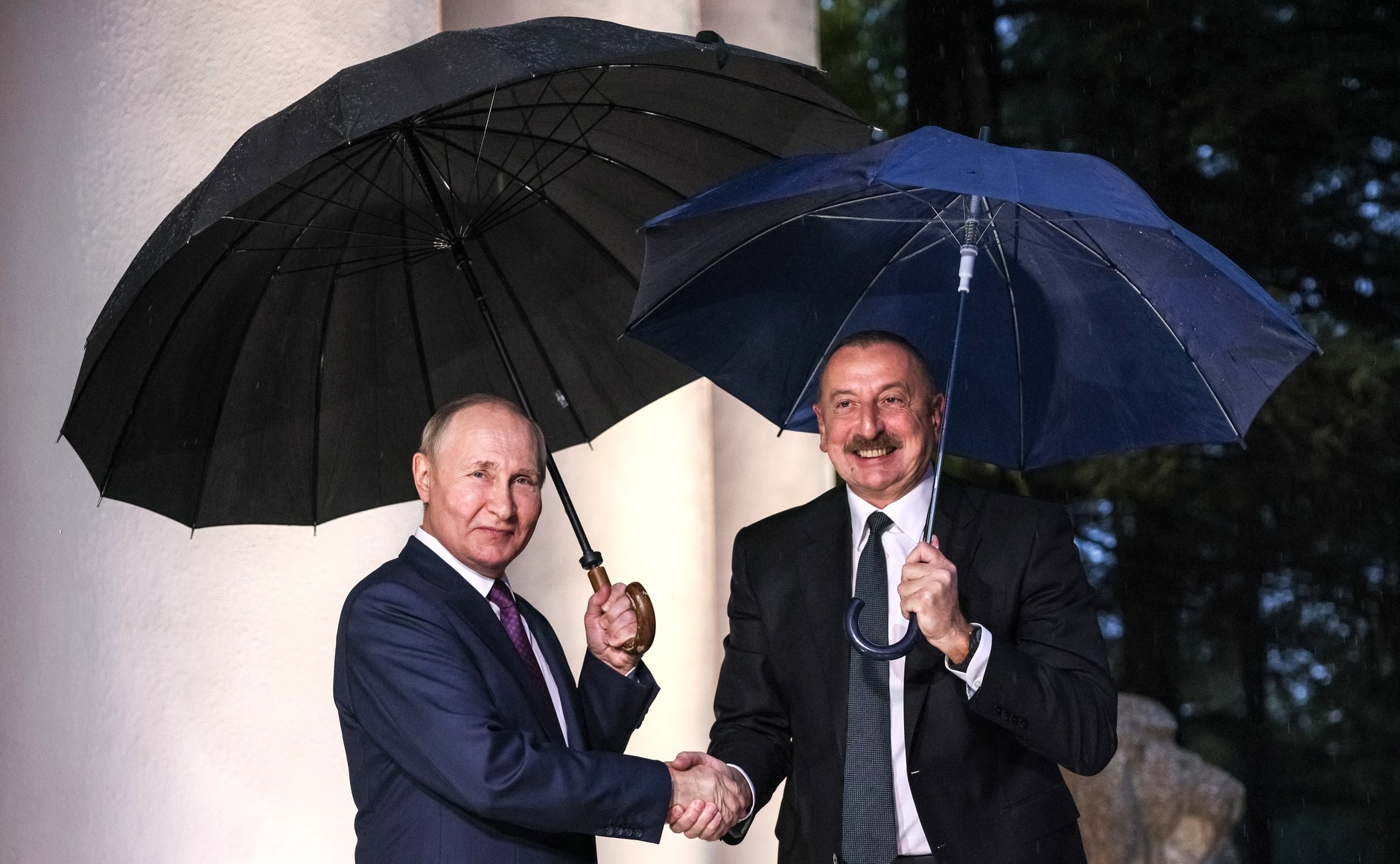
Photo: Vladimir Putin avoids publicly admitting guilt, as he considers it "undignified" in front of a country he perceives as lower in status (kremlin.ru)
Putin himself understands the problem, doesn't want to ruin relations, and most likely made some confessions in private conversations with Aliyev. However, Aliyev wants public apologies, is very upset, and is showing dissatisfaction. It's not so much about the fact of the catastrophe, which happened due to a tragic combination of circumstances and as a result of actions by Russian air defense, but about Putin's behavior.
"I think, not fully and not so publicly, but Moscow will make a gesture toward Baku. Not Putin personally, but the Ministry of Foreign Affairs or some other agency will somehow apologize to Azerbaijan in a veiled way, and compensation will be paid. As for money, this is the easiest thing for Russia. And it will be done semi-officially and in such a way that Russian propaganda will stay silent," added the interlocutor.
Fesenko emphasizes that it is still important for Putin to smooth over the conflict. Initially, they tried to cover it up with versions about birds and the oxygen tank, but it turned out that the plane crashed for other reasons. The Russian dictator had to maneuver, and now he is trying to minimize the negative consequences, but a certain cooling of relations will manifest for some time.
The negative consequences will likely affect the scale of air traffic with Russia, especially in the North Caucasus region. It is quite possible that international aviation organizations and some countries will demand the establishment of a zone closed to civil aviation, believes the political scientist.
Will Aliyev turn away from Putin because of the AZAL disaster
Completely ruining relations is not in the interest of either Azerbaijan or Russia. The current cooling of relations is unlikely to be long-lasting and will probably last at most a few months or half a year, according to Fesenko.
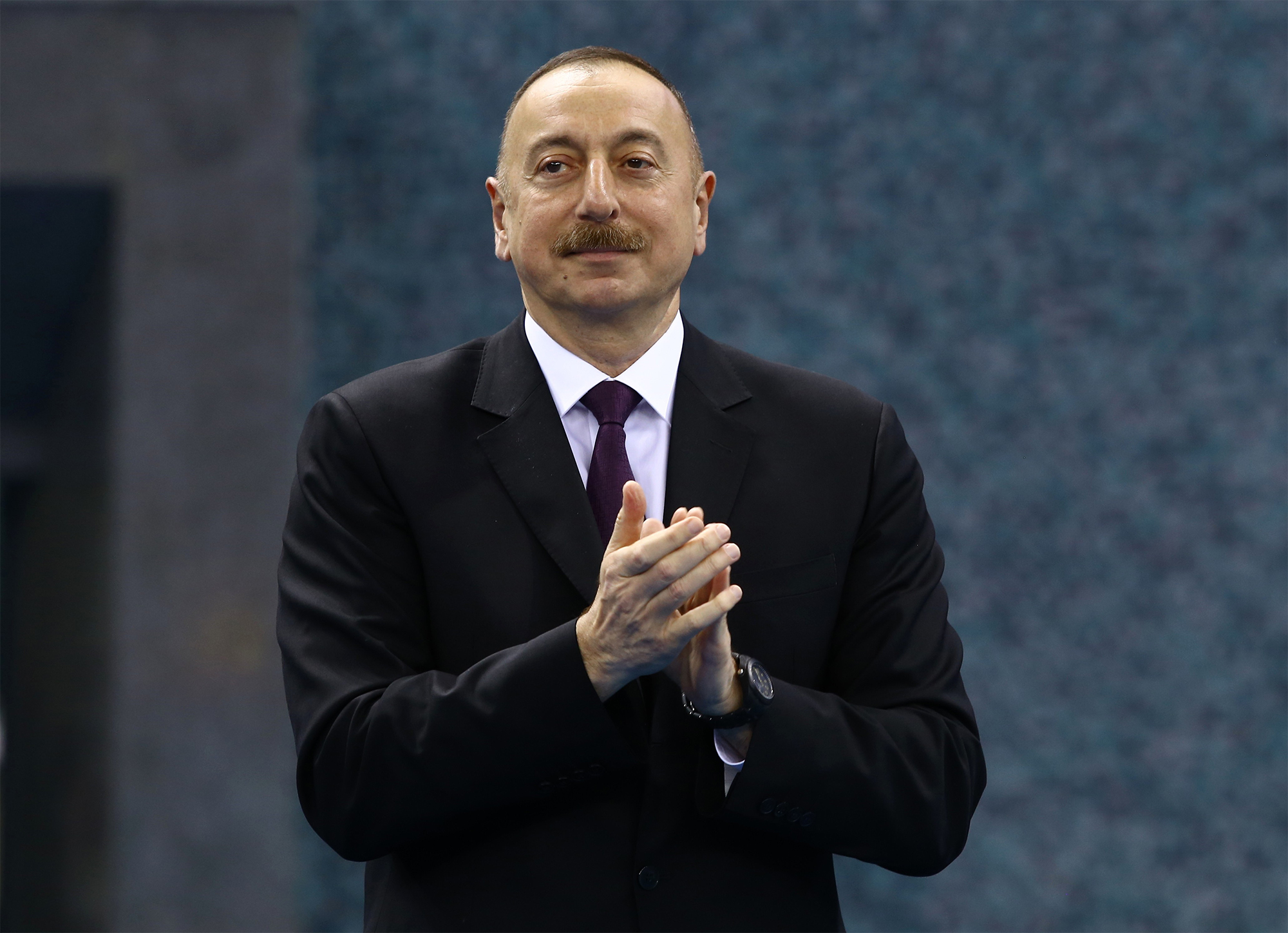
Photo: Ilham Aliyev is not interested in a prolonged cooling of relations with Russia (Getty Images)
An example of this can be the 2015 incident when a Turkish F-16 shot down a Russian Su-24 near the Syrian border. This triggered a full-blown crisis, with Moscow clashing with Ankara and even imposing sanctions. However, after a few months, Recep Tayyip Erdoğan apologized, and relations gradually normalized.
"Of course, there are still some contradictions between Putin and Erdoğan, but they have restored not just nominally friendly, but also partnership relations in many areas. I think the situation with Azerbaijan will be similar," he noted.
The episode with the AZAL plane crash and the "nonsensical versions" revealed the nature of Putin's regime.
"It is a distorted 'great power mentality,' an immoral way of behaving when Russia cannot admit its guilt, and does not want to act the way civilized countries do in such situations. Right now, Aliyev is offended and cannot ignore the dignity of his state, so he has to show a strong reaction. Relations with Putin are important to him, he does not intend to quarrel, but at the same time, he showed that he will not turn a blind eye. Moreover, this also shows that Putin is no longer feared as he once was," Fesenko concluded.
Sources: materials from Russian and Azerbaijani media, statements from Russian government representatives, an interview with Azerbaijani President Ilham Aliyev for local TV, and comments from the head of the Center for Applied Political Studies Penta, Volodymyr Fesenko.
